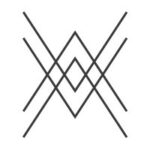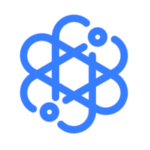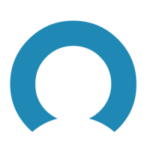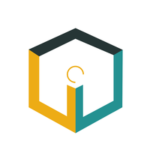Did you know that blockchain can be used to optimise the tracking of materials like textiles and gold, as well as to improve the quality of scientific publishing? This week we’re checking out the blockchain companies that were pre-selected by the Blockchers project as the most promising in their areas, hailing from Germany, Switzerland, Spain and Estonia.
Meet Blockchers
Blockchers is a new project, founded in 2019, that supports the growth of future and emerging DLT (Distributed Ledger Technology) technologies, specifically Blockchain. They select the most promising startups in this area, give them support, up to €50K direct equity-free funding, and also connect them with traditional SMEs, to carry the benefits and opportunities of these new technologies further.
The unique EU-funded Horizon2020 aid program is co-ordinated by 4 key partners, each bringing their own expertise to the table: Innomine Group (Hungary), Zabala Innovation Consulting (Spain), Frankfurt School of Blockchain Center (FSBC) (Germany) and ALASTRIA (Spain). In particular, Innomine facilitates mentorship workshops and events for the SMEs, providing guidance and knowledge that helps them successfully develop and finally land the programme funding.
Meet their 4 promising blockchain startups working in these sectors:
 Minespider – Switzerland-based startup Minespider (founded in 2017) is currently the only open protocol focused on raw material tracking, with the competition focusing on private blockchains. How does it help to create clean products? As an open blockchain protocol it creates digital certificates that offer all stakeholders the opportunity to introduce and track the origins of the materials, sustainability metrics of suppliers, and circular (recycling) systems. Relevant markets include Energy & Cleantech, Fashion, Government, Manufacturing, Social Enterprise, Clean Technology, Corporate Social Responsibility, Mining, and Textiles. So far, the startup has been working with Etisha Collective (EC) to set up an end-to-end traceability solution for their sustainable towels, tracking cotton from producers in Turkey, to processing facilities (yarning/weaving/etc.) and finally the retail stores. They’ve also partnered with companies such as Google, Volkswagen, Cisco, SGS, Stannol and Minsur, enabling them to create clean products. Consumers can scan a QR code to view their towel’s ‘Product Passport’.
Minespider – Switzerland-based startup Minespider (founded in 2017) is currently the only open protocol focused on raw material tracking, with the competition focusing on private blockchains. How does it help to create clean products? As an open blockchain protocol it creates digital certificates that offer all stakeholders the opportunity to introduce and track the origins of the materials, sustainability metrics of suppliers, and circular (recycling) systems. Relevant markets include Energy & Cleantech, Fashion, Government, Manufacturing, Social Enterprise, Clean Technology, Corporate Social Responsibility, Mining, and Textiles. So far, the startup has been working with Etisha Collective (EC) to set up an end-to-end traceability solution for their sustainable towels, tracking cotton from producers in Turkey, to processing facilities (yarning/weaving/etc.) and finally the retail stores. They’ve also partnered with companies such as Google, Volkswagen, Cisco, SGS, Stannol and Minsur, enabling them to create clean products. Consumers can scan a QR code to view their towel’s ‘Product Passport’.
 Orvium – Founded in Tallinn in 2018 with its headquarters in Vitoria-Gasteiz, Spain, Orvium is a scientific publishing platform that helps researchers publish their work. Orvium works to eliminate market inefficiencies and improve the quality and effectiveness of scientific publishing. The ultimate objective is for Orvium to be the leading publication platform for the research community while contributing and benefitting science and society. Relevant markets include Education, Software development, Data & Analytics and Research. Today, Orvium offers a scientific repository with decentralized peer review process for authors and reviewers enabling copyright control, full traceability and recognition for stakeholders using DLT. Working along with Ikustec they are building a SaaS platform for OA journals enabling minimal operational costs, decentralized management, collaborative platform, traceable life cycle, brand recognition as a center of innovation, and access to content in their field and talent.
Orvium – Founded in Tallinn in 2018 with its headquarters in Vitoria-Gasteiz, Spain, Orvium is a scientific publishing platform that helps researchers publish their work. Orvium works to eliminate market inefficiencies and improve the quality and effectiveness of scientific publishing. The ultimate objective is for Orvium to be the leading publication platform for the research community while contributing and benefitting science and society. Relevant markets include Education, Software development, Data & Analytics and Research. Today, Orvium offers a scientific repository with decentralized peer review process for authors and reviewers enabling copyright control, full traceability and recognition for stakeholders using DLT. Working along with Ikustec they are building a SaaS platform for OA journals enabling minimal operational costs, decentralized management, collaborative platform, traceable life cycle, brand recognition as a center of innovation, and access to content in their field and talent.
 Join GmbH – Founded in 1999, German company Join is creating solutions for internal and cross-company communication and collaboration. Nowadays, various platforms provide infrastructures for digitization activities to improve cross-company collaboration, but the lack of personalization in company processes and mistrust in data security often results in objections against such services. This is where Join’s solution comes in, hoping to apply to sectors like Mobility & Transport, Legal & Compliance, IT, and Industry 4.0. So far the company is working to equip industrial scales (which are not digitised, incurring time and costs for manual work) with a blockchain-based decentralized identity, to transmit data in encrypted format to a smart contract. This will make it trustworthy and digitally accessible to all businesses, who rely on the weighing results. Additionally, a digital certificate can be attached to the identity of the scales by auditors.
Join GmbH – Founded in 1999, German company Join is creating solutions for internal and cross-company communication and collaboration. Nowadays, various platforms provide infrastructures for digitization activities to improve cross-company collaboration, but the lack of personalization in company processes and mistrust in data security often results in objections against such services. This is where Join’s solution comes in, hoping to apply to sectors like Mobility & Transport, Legal & Compliance, IT, and Industry 4.0. So far the company is working to equip industrial scales (which are not digitised, incurring time and costs for manual work) with a blockchain-based decentralized identity, to transmit data in encrypted format to a smart contract. This will make it trustworthy and digitally accessible to all businesses, who rely on the weighing results. Additionally, a digital certificate can be attached to the identity of the scales by auditors.
 HOP Ubiquitous (HOPU) – Founded in 2014 in Murcia, HOPU is providing climate change mitigation solutions based on IoT and AI. HOPU’s solution called ‘Smart Spot’ creates smart and sustainable environments, by offering environmental monitoring (air quality) and ambient monitoring (noise, temperature, humidity, light level, etc.), as well as with its weather stations for accurate systems monitoring. HOPU’s IoT Management Platform (Homard) allows remote monitoring, bootstrapping, commissioning, and also logic building (IFTTT), data/events subscriptions and interfaces with Cloud Computing platforms with partners such as Fujitsu, Microsoft and Open Source platform FIWARE; where HOPU is Gold Member of FIWARE Foundation. Relevant markets include Agriculture, Architecture & Construction, Computer Security, Consulting, Government, Internet of Things, Smart Cities, Industry 4.0. So far, they’ve been working on continuous monitoring of gases emissions in the plastic injection industry, which is required by environmental law and occupational therapy.
HOP Ubiquitous (HOPU) – Founded in 2014 in Murcia, HOPU is providing climate change mitigation solutions based on IoT and AI. HOPU’s solution called ‘Smart Spot’ creates smart and sustainable environments, by offering environmental monitoring (air quality) and ambient monitoring (noise, temperature, humidity, light level, etc.), as well as with its weather stations for accurate systems monitoring. HOPU’s IoT Management Platform (Homard) allows remote monitoring, bootstrapping, commissioning, and also logic building (IFTTT), data/events subscriptions and interfaces with Cloud Computing platforms with partners such as Fujitsu, Microsoft and Open Source platform FIWARE; where HOPU is Gold Member of FIWARE Foundation. Relevant markets include Agriculture, Architecture & Construction, Computer Security, Consulting, Government, Internet of Things, Smart Cities, Industry 4.0. So far, they’ve been working on continuous monitoring of gases emissions in the plastic injection industry, which is required by environmental law and occupational therapy.
